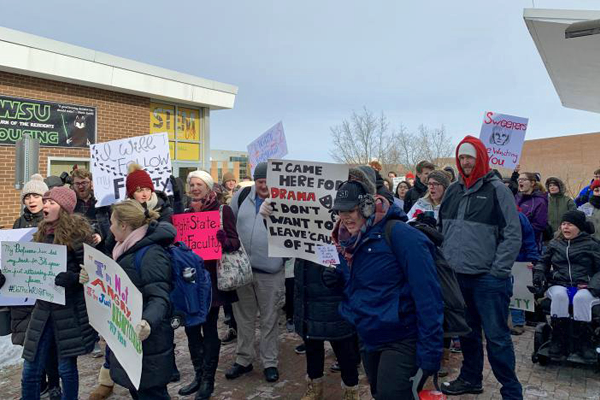
Excerpt from the WSU Guardian
Following a strike that fostered months of distrust and anger on all sides, Wright State University administration said they’re taking a series of steps to rebuild trust within the campus community.
“I hesitate to use the word heal,” said Dr. Susan Edwards, the university’s provost. “I think what we really need to do is reconnect and re-engage with one another. Us and them is not the way to rebuild a relationship together.”
But interviews with dozens of students, faculty, staff, and administrators said trust continues to be an issue, some six-months after the three-week strike ended.
“You know when you have a strike like that there is division, and the things that occurred during that strike, it’s going to take time to build trust back. It doesn’t happen overnight,” said Representative Rick Perales, whose 73rd Ohio House district includes Wright State.
Wright State administrators have begun a number of initiatives;
- Dr. Cheryl Schrader, university president, said she’s organizing brown bag lunches with small groups of faculty from around the university. “I think it’s a great way to hear from faculty without a dean in between,” she said.
- Edwards plans to meet with faculty, staff, and students to hear their concerns calling it a ‘stump the chumps’ session where people can ask her anything.
- The university will host small group sessions with faculty, staff and administrators to build relationships and improve dialogue.
- The university’s The Longest Table event will focus on how to promote the positive aspects of Wright State.
After going without a contract for two years, the American Association of University Professors Wright State chapter (AAUP-WSU) and administration negotiated, went through fact-finding and exchanged contract offers. When the sides couldn’t agree on a new deal, the board of trustees, on Jan. 4, implemented a contract. The union responded by going on strike for 20 days.
“We have a new contract, we have a lot of people in new positions and it’s time to start fresh,” said Dr. Noeleen McIlvenna, president for the Wright State chapter of the American Association of University Professors.
The task of rebuilding trust and communication lay against the backdrop of declining enrollment during the fall semester that started last week.
Wright State expects enrollment to drop by 16 percent year-over-year decline in enrollment that could cost the university $18 million in lost tuition.

